What is an Official Translation? When and Why You Need One for Immigration or Legal Use

Summary:
An official translation is a certified translation that holds legal recognition. It is a translation that has been performed by a professional translator or translation service, guaranteeing the translation is faithful to the original document in both content and meaning. This type of translation is often required by courts or other official institutions to ensure that the document has been accurately translated for legal or immigration purposes.
Key Points to Consider About Official Translations:
- Accurate: The translator certifies that the document is true to the original and that no information has been altered or omitted.
- Legally Recognized: An official translation is generally accepted by governmental and legal entities. This ensures that the document holds weight in foreign jurisdictions for official use.
- Notarized: Some official translations require notarization. This step serves two purposes: it confirms the authenticity of the translation, and it also serves to identify the translator.
Documents that often require official translations include personal records, educational materials, and legally binding documents. For instance, when you apply for immigration, agencies like the USCIS (U.S. Citizenship and Immigration Services) require official translations of documents such as birth certificates or academic records to accompany your application.
2. When Do You Need an Official Translation?
In some cases, the need for an official translation is dictated by the specific situation—particularly in legal, immigration, and business matters. Though there are no federal laws mandating when official translations are required, their use is often governed by mutual consent within legal relationships or contracts. Below, we’ll outline several common scenarios in which having an official translation is a good idea, if not an outright requirement.
Immigration and Visa Applications:
When applying for a visa, green card, or other immigration benefits, the USCIS and other government agencies require that certain documents be translated into English if they are originally in another language. Common documents that often require official translations include:
- Birth Certificates: Proof of identity, age, and nationality is often required during immigration applications.
- Marriage Certificates: For family-based immigration, you might need an official translation of your marriage certificate.
- Police Records: Immigration authorities often require translated criminal records for background checks.
- Adoption Records: Adoption documents may need to be officially translated for applications related to family reunification or other immigration procedures.
Business and Commercial Use:
Translations performed by certified professionals are also crucial in international business. When you’re dealing with legal documents—like contracts—between businesses, you need to ensure that all parties fully understand the content, including the nuances of legal terminology. Misinterpretation of legal documents could result in severe consequences.
Some common cases where official translations are essential include:
- International Contracts: Legal contracts signed between businesses in different countries must be clear and understood by both parties.
- Patents: Patent documents filed in one country may need to be translated to meet different patent laws in other countries.
- Business Registrations: When registering a business in a foreign country, official translations of incorporation papers, tax filings, and annual reports might be required.
In these situations, professional translations ensure the accuracy of the information and compliance with foreign laws and regulations.
3. Why is an Official Translation Important?
Official translations serve as a vital tool to ensure legal and immigration processes run smoothly. Here are some key reasons why official translations are crucial:
Legal Protection:
When dealing with legal affairs, you must ensure that a certified translation protects you from potential legal issues. If you submit a translation of a legal document to a court or government body, it should be understood that the translation is just as valid as the original. The importance of linguistic accuracy cannot be overstated. A poorly done translation could land you in legal trouble, causing delays or complications that might harm your case.
Compliance with Regulations:
Translations done by unauthorized individuals may not meet the required standards set by authorities. For example, the USCIS requires that all foreign-language documents accompanying applications must be translated into English by a qualified translator. If a document is translated but is not certified as accurate, it could be rejected or cause delays in the process.
Trust and Authenticity:
Certified translations provide confidence that they are trustworthy and accurate. In many cases, translations need to be notarized, which verifies the credentials of the translator and assures the authenticity of the document. In legal matters, a valid translation could be a make-or-break factor in determining the success of your case.
Key Benefits:
- Legal Legitimacy: Official translations are legally valid and recognized by immigration authorities and courts.
- Accuracy: The translation accurately reflects the content and meaning of the original document.
- Government Compliance: Official translations meet the standards required by legal and governmental agencies, making the approval process smoother.
- Trustworthiness: Notarization adds a layer of verification that the translation is authentic and reliable.
4. How to Get an Official Translation?
Getting an official translation is a straightforward process, but attention to detail is necessary to ensure everything is done correctly. Here’s a step-by-step guide to getting your documents translated officially:
1. Find a Certified Translator:
If you need an official translation, you should work with a translator or translation service recognized by the relevant authorities. For immigration-related translations, the translator must be able to certify the translations as true and accurate. Many certified translators are accredited by organizations such as the American Translators Association (ATA).
2. Ensure Notarization If Needed:
In some cases, your document’s translation must be notarized. Notarization means that a notary public certifies the authenticity of the translator’s signature and the document’s validity. This adds an extra layer of legal assurance.
3. Review Your Documents:
Ensure all documents are complete and in good condition before submitting them for translation. A damaged or incomplete document may lead to a translation that is missing important information.
4. Provide Specific Instructions:
Let your translator know if the document includes technical jargon or special context. This ensures that the translation reflects the correct meaning, especially for legal, medical, or other specialized documents.
5. Submit and Verify:
Once the translation is complete, review it carefully to ensure that it aligns with the original document. Verify that the translation reflects the original meaning and includes all the necessary details. Then, submit the translation to the relevant immigration or legal authority.
Conclusion:
Official translations are essential for ensuring that documents are legally recognized and accurately reflect the original text. Whether you’re submitting documents for immigration purposes, legal proceedings, or international business, having an accurate, certified translation is critical. Always ensure that your translation meets the standards set by the relevant authorities to avoid unnecessary delays or complications.
If you’re uncertain about the translation process or need assistance with an official translation, consider working with a certified translation service. They can guide you through the process and ensure that your documents are compliant and ready for submission.
Daniel Brooks is a New York City-based writer and content strategist with a deep curiosity for how language shapes connection across cultures. With over ten years of experience crafting digital content for global audiences, Daniel brings a thoughtful and practical voice to the Connected Translations blog.


